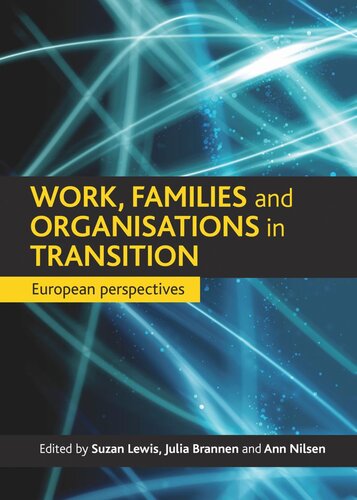

Most ebook files are in PDF format, so you can easily read them using various software such as Foxit Reader or directly on the Google Chrome browser.
Some ebook files are released by publishers in other formats such as .awz, .mobi, .epub, .fb2, etc. You may need to install specific software to read these formats on mobile/PC, such as Calibre.
Please read the tutorial at this link: https://ebookbell.com/faq
We offer FREE conversion to the popular formats you request; however, this may take some time. Therefore, right after payment, please email us, and we will try to provide the service as quickly as possible.
For some exceptional file formats or broken links (if any), please refrain from opening any disputes. Instead, email us first, and we will try to assist within a maximum of 6 hours.
EbookBell Team

4.4
82 reviewsAcross Europe the importance of reconciling paid work and family life is increasingly recognised by a range of diverse government regulations and organisational initiatives. At the same time, employing organisations and the nature of work are undergoing massive and rapid changes, in the context of global competition, efficiency drives, as well as social and economic transformations in emerging economies. Work, families and organisations in transition illustrates how workplace practices and policies impact on employees' experiences of work-life balance in contemporary shifting contexts. Based upon cross-national case studies of public and private sector workplaces carried out in Bulgaria, Norway, Portugal, Slovenia, Sweden, the Netherlands and the UK, this innovative book demonstrates the challenges that parents face as they seek to negotiate work and family boundaries. The case studies demonstrate that employed parents' needs and experiences depend on many layers of context - global, European, national, workplace and family. This book will be of interest to undergraduate and postgraduate students of organisational psychology, sociology, management and business studies, human resource management, social policy, as well as employers, managers, trade unions and policy makers.